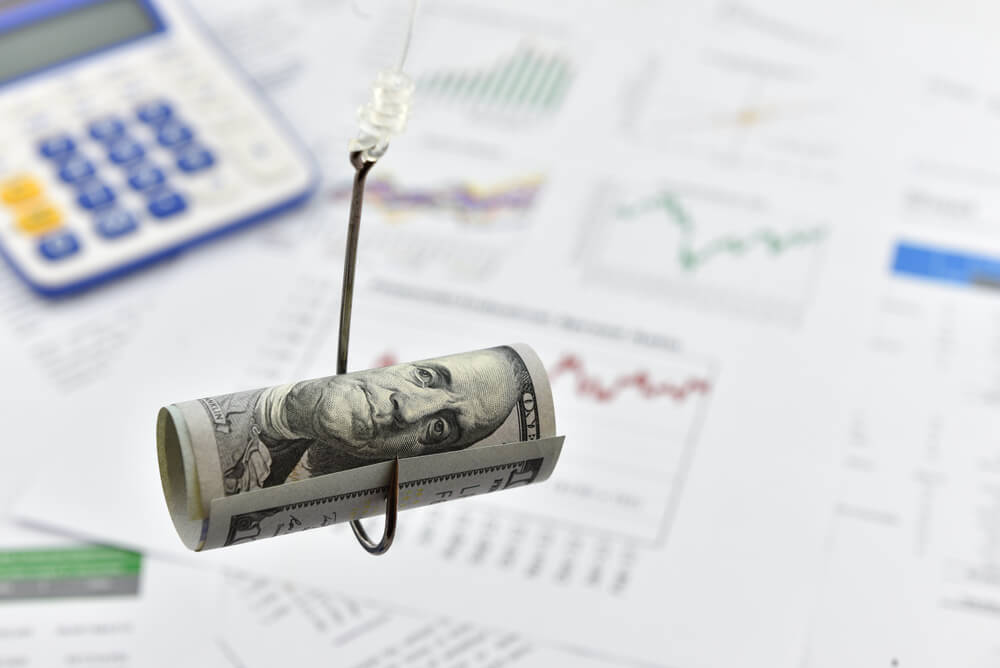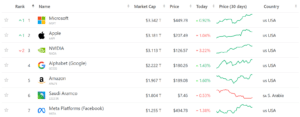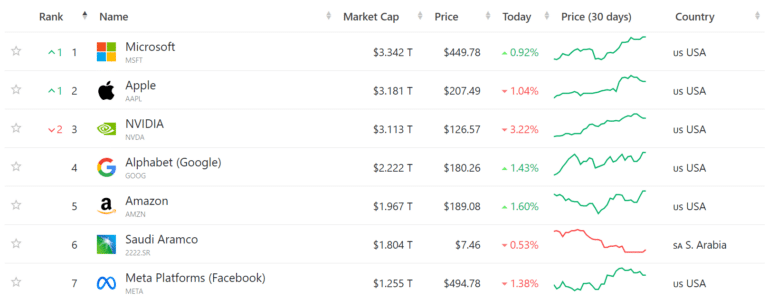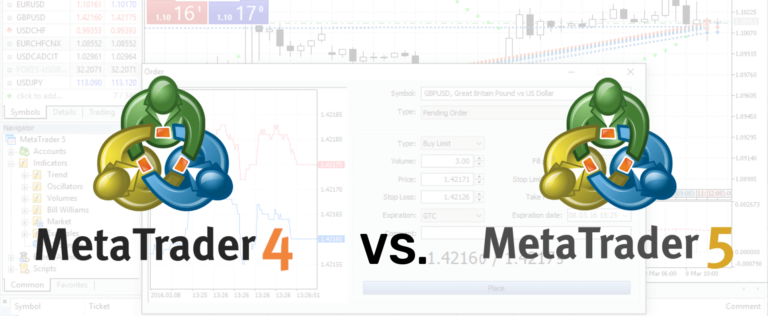The world of trading gives traders the ability to capture opportunities amidst changing market conditions. However, it also poses risks for unsuspecting traders who lack the market or technical knowledge they need to safely chart their trading journey. In this comprehensive article, you will find out more about common trading scams, the psychology behind them, and essential tips on how to avoid falling victim to them. By understanding common scam tactics and following the tips outlined in this article, you can protect yourself from falling victim to fraudulent schemes and become a more informed trader.
Common Trading Scams
- Ponzi schemes: In a Ponzi scheme, the operator promises high returns to investors, typically with little to no risk involved. However, rather than generating legitimate profits, these returns are paid to earlier investors using funds from new investors, creating an illusion of profitability. The scheme relies on a continuous influx of new investors to sustain payouts, as no actual investments or profitable activities are involved. Eventually, as the pool of new investors dwindles, the scheme collapses, leaving many investors with significant financial losses.
- Pump and dump: In a pump-and-dump scheme, fraudsters artificially inflate the price of a stock or cryptocurrency by spreading false information or rumours. Once the price has surged, they sell off their shares at a profit, leaving other investors with worthless assets. This type of scam is especially prevalent in the cryptocurrency world.
- Fake trading systems: Scammers often promote automated trading systems or robots that claim to generate guaranteed profits. These systems typically require an upfront payment, but they rarely deliver the promised results and can lead to substantial losses. These fake trading bots and systems target both novice and experienced traders.
- Fake trading advisory services: Fake trading advisory scams are deceptive practices in which individuals or organisations pose as reputable trading advisors or money managers. They promise personalised trading advice to help clients achieve substantial profits and can also offer to manage actual funds and trading orders on the victim’s behalf. However, these advisory services are often fraudulent, involve excessive costs, and are typically low quality or entirely fabricated, causing clients to make poor, loss-incurring decisions.
- Signal selling scams: Some scammers claim to provide accurate and profitable trading signals for a fee, including insider knowledge, secret strategies, or automated systems that can lead to significant profits. However, these signals are typically worthless or even counterproductive, resulting in losses for unsuspecting traders. Scammers often use persuasive marketing tactics and fake testimonials to lure victims into these schemes.
- Binary options scams: Binary options are high-risk financial instruments where investors bet on the price movement of an asset within a specific timeframe. Some binary options platforms manipulate prices and refuse to allow withdrawals, effectively stealing investors’ money. Regulatory authorities in many countries have cracked down on binary options scams.
- Phishing and identity theft: Phishing emails or websites are designed to trick traders into revealing their personal and financial information. Once scammers have access to this data, they can steal your identity or commit fraud in your name.
Common phishing tactics include sending fake emails that appear to be from a well-known company or institution and asking recipients to click on a link that leads to a fake website designed to steal their information. Phishing can also involve phone calls or text messages that try to convince victims to share sensitive data or take specific actions.
Common Psychological Tactics Used by Scammers
Whether you’re a day trader, prefer to hold longer positions, choose to trade forex, or trade according to trading signals, you can still be targeted by trading scammers. Knowledge is your best defence, so be aware of the different ways such fraudsters may approach you.
- Greed: Many trading scams appeal to the desire for quick and substantial profits. They dangle the prospect of get-rich-quick schemes in front of potential victims, making them more susceptible to fraudulent schemes.
- Fear of missing out (FOMO): Scammers often create a sense of urgency by claiming that an investment opportunity is available for a limited time or that others are already profiting from it. This taps into the fear of missing out on potential gains.
- Trust: Fraudsters may go to great lengths to establish They may use fake testimonials, false endorsements from celebrities or experts, or even create convincing websites and documents to appear legitimate.
- Social proof: Scammers may claim that many others have already invested and profited, making potential victims feel more comfortable joining the bandwagon.
- Lack of knowledge: Many victims of trading scams are inexperienced or lack knowledge about financial markets. Scammers take advantage of this by providing simplistic explanations that don’t allude to risks and make promises of easy profits.
How to Avoid Trading Scams
There are several simple precautions you can take to protect yourself from scammers in the world of trading. Here’s how:
- Conduct due diligence: Before investing in any trading opportunity, thoroughly research the platform, broker, or investment firm. Check for licenses and regulatory approvals from reputable authorities. Verify the credentials of the individuals or teams behind the project.
- Avoid high-pressure sales tactics: Scammers often use high-pressure tactics to rush you into making quick decisions. Be cautious of anyone who insists that you must invest immediately to seize an opportunity or reaches out to you relentlessly even after you’ve turned them down. Legitimate brokers will never force you to act.
- Be wary of unrealistic returns: If an investment opportunity promises returns that seem too good to be true, it probably is. Keep in mind that legitimate investments carry inherent risks, and there are no guaranteed profits or get-rich-quick schemes in trading or investing.
- Use reputable brokers: Trade with established and well-regulated brokers. Check their history, review their leadership team and affiliations, and look for user reviews and feedback from other traders to ensure the platform’s credibility.
- Protect your personal information: Never share personal or financial information with unknown parties or suspicious websites. While brokers may require identity or address proofs during the initial verification of your account, they will never ask for your passwords or PIN numbers. Use strong, unique passwords for your trading accounts and enable two-factor authentication whenever possible.
- Stay informed: Keep up to date with the latest news and trends in the financial markets. This will help you spot inconsistencies and red flags in potential investment opportunities.
- Report suspicious activity: If you encounter a potential trading scam or believe you have fallen victim to one, report it to your local authorities and relevant regulatory agencies. Timely reporting can help prevent others from falling into the same trap.
Remember that legitimate investments carry risks, and anyone promising guaranteed returns with no risk is likely trying to scam you. Always do your due diligence, seek advice from reputable sources, and be cautious when trading with your money. By following these guidelines, you can navigate the world of trading safely and confidently.
Frequently Asked Questions
Q: Is day trading a scam?
A: No, day trading is not a scam. It is a legitimate trading strategy that traders use to capture market opportunities from price movements within a day.
Q: How to avoid forex scams?
A: Choose regulated and established brokers, be wary of guaranteed profits, avoid high-pressure sales tactics and only make a decision when you have complete information.
Q: I suspect that I’m being scammed. What can I do?
A: If you suspect a scam, cease any transactions, contact your financial institution, report to authorities, and seek legal advice. Be cautious with personal information and trust your instincts when something seems too good to be true.















